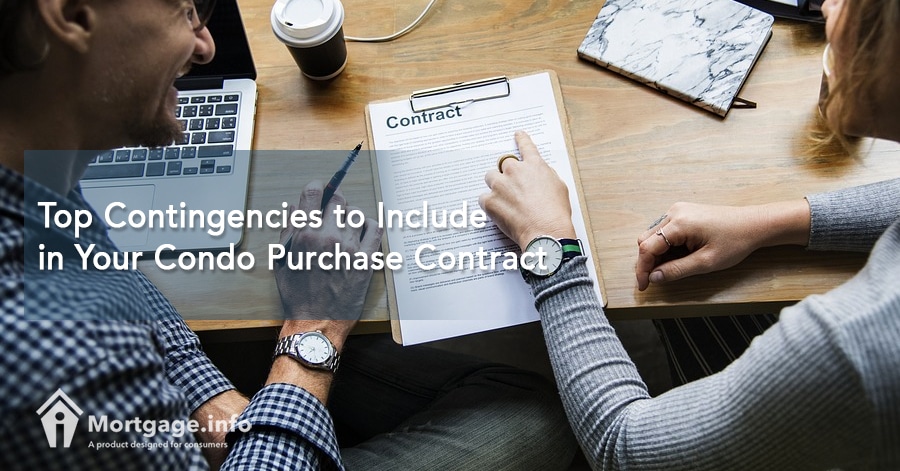
You are buying a condo – that’s an exciting purchase! Before you sign on the dotted line on that purchase contract, though, make sure you have the proper contingencies in your contract. Without them, you won’t have a leg to stand on should you need to back out of the purchase contract.
Get Matched with a Lender, Click Here.
You can think of contingencies as ‘insurance.’ If you have to cancel the purchase for some reason and it’s covered under one of your contingencies, you won’t have to give up your earnest money deposit. If the reason doesn’t fall under a contingency or you don’t have any contingencies, you may have to lose your earnest money deposit.
So what contingencies should you put on your contract? Keep reading to learn the most popular choices among homebuyers.
Financing Contingency
Even if you got yourself preapproved before you shopped for a condo (which you should do), it’s wise to add a financing contingency to your contract. This gives you a little extra time to iron out the details with your lender. What if something unexpected pops up and you lose your loan approval? If you don’t have a financing contingency, the seller can keep your earnest money and put the house back on the market.
Inspection Contingency
Since you can’t tell what a house is like on your own and even the appraiser won’t notice certain issues, an inspection contingency is important. This gives you time to hire an inspector and have the inspection done. Once you receive the report back from the inspector, read it right away. This way you can determine if there are things wrong with the home; they may make the home less valuable to you. With this contingency in place, you can ask the seller to fix the issues, give you a seller’s credit, or you can back out of the sale without losing your earnest money.
Click to See the Latest Mortgage Rates.
Sale of Home Contingency
If you currently own a condo or any other property and you need to sell it before you can buy the new condo, you’ll need the sale of home contingency. This gives you time to get a contract on your current property. Since it’s risky to sign a purchase contract without selling your other property first, this contingency is often very important. What if you don’t sell your current property? Can you afford two mortgages at one time? Can you qualify for both mortgages? Another contingency could come into play here if you have a financing contingency. If your lender requires your current property be sold before you get final approval, you could be covered in two ways here.
Title Contingency
The title contingency gives you a way out of the contract if the title search doesn’t show that the current owner has free ownership of the home. If there are liens or other issues with the chain of ownership, the home may not be available for a quick sale. The other liens will have to be handled first. If you were to take possession of the property with liens on it, they become your problem, which is likely the last thing you want when buying a new condo.
Consider any or all of these contingencies to help make the purchase of a condo easier for you. Sellers often require earnest money down with the contract. This gives them protection should you back out of the contract. It also helps them know that you are a serious buyer and not just wasting their time. In order to protect that money, you’ll need contingencies that pertain to your situation. It’s best if you involve an attorney during this process to ensure that you have your bases covered.
